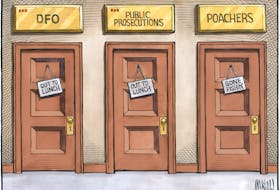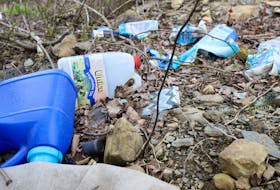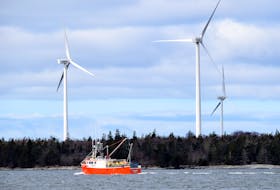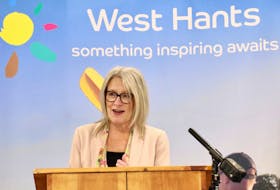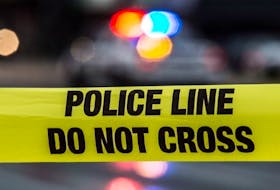Currie, the Truro Fire Service chief, participated in a three-day course with regards to rail safety.
"Being in a town where there's a railroad through the town, there is a concern with what's on those railcars and what we can do if an emergency happens," said Currie.
"Everything comes through here. There are a variety of chemicals and products that travel through the town."
With about 40 members in his class, Currie said the course dealt with spills, firefighting, and the safety of the rail system itself if a derailment were to occur. Over the three days, half was spent on theory, with the other half covering practical.
He said the biggest thing he walked away with is the safety when working around railcars.
"And understanding the potential dangers involved in a derailment."
Because of the knowledge he gained through the CN Rail course, he's looking at continuing with others, such as one on liquids, petroleum and gasses, as well as bringing some training to local firefighters.
"CN Rail is going to do some railcar training," he said, adding there was similar training here about a year ago. "A big thing for the public to understand is that CN does earmark money for training like this so that, in the event something does go wrong, we are properly trained."
Currie said training with railcars and potential spills is something that's not done enough, but he's hoping to change that.
"I believe it's something that firefighters should be constantly training on, and my plan is to increase that training on railcars. If, in the event something does happen, we would be better prepared for it."
It was through the local EMO co-ordinator that Currie learned of last week's training, which focused on first responder basic knowledge, skills, and abilities to respond to incidents involving crude by rail.
Participants learned the history of crude oil, chemical and physical properties of crude oil that's transported, as well as basic site and damage assessment. The course also covered applying firefighting foam agents, water and spill control procedures, and the environmental impacts of incidents.
Twitter: @TDNRaissa
Currie, the Truro Fire Service chief, participated in a three-day course with regards to rail safety.
"Being in a town where there's a railroad through the town, there is a concern with what's on those railcars and what we can do if an emergency happens," said Currie.
"Everything comes through here. There are a variety of chemicals and products that travel through the town."
With about 40 members in his class, Currie said the course dealt with spills, firefighting, and the safety of the rail system itself if a derailment were to occur. Over the three days, half was spent on theory, with the other half covering practical.
He said the biggest thing he walked away with is the safety when working around railcars.
"And understanding the potential dangers involved in a derailment."
Because of the knowledge he gained through the CN Rail course, he's looking at continuing with others, such as one on liquids, petroleum and gasses, as well as bringing some training to local firefighters.
"CN Rail is going to do some railcar training," he said, adding there was similar training here about a year ago. "A big thing for the public to understand is that CN does earmark money for training like this so that, in the event something does go wrong, we are properly trained."
Currie said training with railcars and potential spills is something that's not done enough, but he's hoping to change that.
"I believe it's something that firefighters should be constantly training on, and my plan is to increase that training on railcars. If, in the event something does happen, we would be better prepared for it."
It was through the local EMO co-ordinator that Currie learned of last week's training, which focused on first responder basic knowledge, skills, and abilities to respond to incidents involving crude by rail.
Participants learned the history of crude oil, chemical and physical properties of crude oil that's transported, as well as basic site and damage assessment. The course also covered applying firefighting foam agents, water and spill control procedures, and the environmental impacts of incidents.
Twitter: @TDNRaissa

